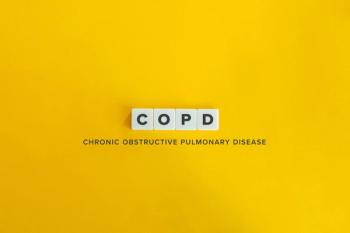
Biologic Therapies May Help Minimize Steroid Risks Among Patients With Severe Asthma
A phase 4 study demonstrated that biologic therapies can control severe asthma while simultaneously helping patients minimize or eliminate harms associated with inhaled corticosteroids.
Among a cohort of patients with severe asthma using the biologic therapy benralizumab, 92% could safely reduce inhaled steroid dose and more than 60% could stop all use.
These findings suggest that biologic therapies may help minimize or eliminate the unpleasant and often serious adverse effects of inhaled corticosteroids (ICS), including osteoporosis, which leads to increased risk of fractures, diabetes, and cataracts.
Findings from the phase 4, randomized, open-label, active-controlled study are published in The Lancet.1
“Biological therapies such as benralizumab have revolutionized severe asthma care in many ways, and the results of this study show for the first time that steroid related harm can be avoided for the majority of patients using this therapy,” lead author David Jackson, PhD, MSc, head of the Severe Asthma Centre at Guy's and St Thomas' and Professor of Respiratory Medicine at King's College London, said in a statement.2
Asthma affects nearly 300 million individuals and is one of the most common respiratory diseases worldwide. Moreover, around 3% to 5% of those with asthma have severe asthma, which is associated with daily symptoms of breathlessness, chest tightness, and cough, as well as repeated asthma attacks which require frequent hospitalization.
This study took place across 22 sites in 4 countries, including the United Kingdom, France, Italy, and Germany. Eligible patients included adults 18 years and older who had been diagnosed with severe eosinophilic asthma and controlled asthma on high-dose ICS following initiation of benralizumab.
Benralizumab is known to reduce the number of inflammatory eosinophils, which are critically involved in the development of asthma attacks, due to the production of abnormal numbers in the airway of patients with severe asthma.
The primary end point was the proportion of patients who successfully reduced their ICS-formoterol maintenance dose at the end of the 32-week reduction period to either a medium-dose maintenance and reliever therapy (MART), a low-dose MART, or ICS-formoterol as needed. Maintenance of asthma was defined as no asthma exacerbations since the previous visit, no increase in Asthma Control Questionnaire (ACQ-5), and no significant increase in ICS-formoterol reliever use in the past 4 weeks.
Between November 12, 2019, and February 16, 2023, a total of 208 patients were randomly assigned to reduce their ICS use by varying amounts over the course of 32 weeks, followed by a 16-week maintenance period. Additionally, 168 patients were assigned to the reduction phase. However, 14 (8%) patients did not complete the study due to withdrawal, adverse events, protocol deviation, lack of efficacy, and other.
The researchers found that approximately 90% of patients experienced no worsening of asthma symptoms and remained free of any exacerbations throughout the 48-week study. Overall, the mean (SD) changes in total daily ICS doses between reduction and maintenance periods were –3.69 (318.03) for the reduction group and –173.33 (459.79) for the reference group.
Although the researchers acknowledged that more research needs to be done to evaluate the safety and efficacy of eliminating high-dose ICS with other biologic therapies, they believe this study supports using benralizumab without the significant adverse effects of ICS.
“The finding that most patients remained exacerbation-free and had good symptom control on anti-inflammatory reliever therapy only, despite variable degrees of lung function decline over the course of the study, is interesting from a mechanistic perspective and is also clinically important,” wrote the researchers of the study.
References
1. Jackson DJ, Heaney LG, Humbert M, et al. Reduction of daily maintenance inhaled corticosteroids in patients with severe eosinophilic asthma treated with benralizumab (SHAMAL): A randomized, multicenter, open-label, phase 4 study. Lancet. Published online December 7, 2023. doi:10.1016/s0140-6736(23)02284-5.
2. Kings College London. Major breakthrough for severe asthma treatment. News release. EurekAlert! December 8, 2023. Accessed December 8, 2023. https://www.eurekalert.org/news-releases/1010615
Newsletter
Pharmacy practice is always changing. Stay ahead of the curve with the Drug Topics newsletter and get the latest drug information, industry trends, and patient care tips.























